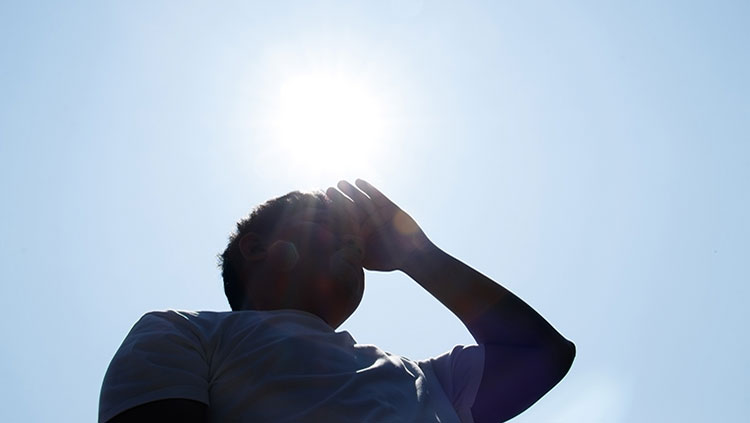
What is heat stroke? Heatstroke or commonly known as “stroke” happens when your body’s been exposed to excessive heat and lack of water for hydration. Heat stroke is known to be the severe health condition among the three heat-related syndromes (heat cramps, heat exhaustion, and heat stroke). It is considered as a serious health condition form of heat that increases your body temperate and if not treated, it can be fatal and can lead to a deadly result. Anyone could get heat stroke even kids, as well as animals. A person doesn’t have to be out in the sun to experience heat stroke. When your body is in a high core temperature, it damages your internal organs, especially the brain. What are the signs and symptoms, and causes of a heat stroke? Read below and click resources:
Signs and Symptoms:
- Fatigue
- Pale skin
- Dark-colored urine
- Dizziness
- Throbbing Headache
- Confusion
- Nausea and vomiting
- Rapid heart rate
- Rapid, shallow breathing
- Seizures
- Unconsciousness
Causes:
- High body temperature – an individual’s body heat along with the environmental heat is what we call core (body) temperature.
- Dehydration – lacks and/or loss of too much fluid from the body.
Before heat stroke, a person may experience heat exhaustion. This heat illness may include heavy sweating, and a rapid pulse which results to a body overheating, but unlike heat stroke, heat exhaustion can be prevented. To prevent this from happening, a person must stay hydrated and maintain a cool body temperature. Overdressing can lead to this health risk as well. Our body cools itself by sweating. The evaporation of our sweat regulates our body temperature, if a person overdressed himself, it will make it harder for the sweat to evaporate easily.
More prevention:
- Do not leave or stay in a parked car – this will increase the chances of overheating even if a person is not out in the sun because the temperature inside the car can rise 20 degrees Fahrenheit in less than 15 minutes.
- Precautions and medications – take extra precautions and medications that can affect the body’s ability to stay hydrated and dissipate heat.
- Slowly get acclimated – if you are not used to hot weather, you must limit yourself from working and/or exercising in heat because people who are not used to it are mostly prone to heat-related illness.
- Visit your doctor – trust your guts. If you feel like your heat-related condition is not getting better or if it’s getting worse within one hour, seek immediate medical attention to professionals.
If you’re suffering or if you know someone who’s experiencing this health risk, take immediate action to cool the overheated body while waiting for the emergency treatment. Keep in mind that if heat stroke is not treated as soon as possible and the longer is it left, the more serious it can become.